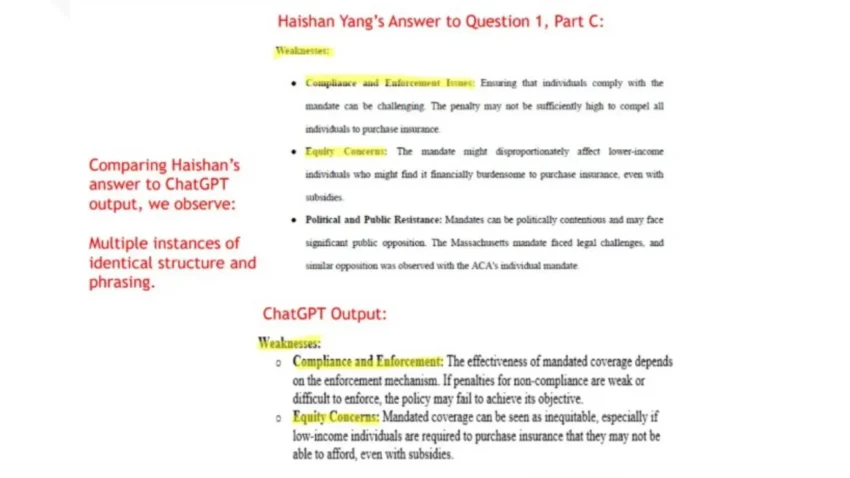In the rapidly evolving academic landscape, the intersection of artificial intelligence and education has sparked intense debate, particularly regarding integrity and originality. Haishan Yang, a Ph.D. student at the University of Minnesota, found himself at the center of this controversy when he was expelled for allegedly using AI tools to complete his essays. Yang vehemently denies these accusations, claiming a conspiracy among his professors, and has taken legal action against the university after losing his student visa. This case raises critical questions about the role of AI in academia, the standards of proof in academic integrity disputes, and the broader implications for students navigating this new digital era.
| Attribute | Details |
|---|---|
| Name | Haishan Yang |
The Rise of AI in Education
Artificial intelligence (AI) is becoming more common in schools and universities, helping students with everything from writing essays to conducting research. Tools like ChatGPT can assist in generating ideas and improving grammar. However, the rise of AI in education also raises important questions about academic honesty and originality. As students increasingly turn to AI for help, educators are concerned about the implications for learning and integrity.
While AI can be a helpful resource, it is crucial for students to understand how to use it responsibly. Relying too much on AI can lead to problems, such as issues with plagiarism and a lack of independent thinking. Educators are now challenged to find a balance between incorporating technology in learning and ensuring students develop their own skills. The case of Haishan Yang highlights the ongoing debate about the role of AI in education and its potential impact on academic performance.
Frequently Asked Questions
What happened to Haishan Yang at the University of Minnesota?
Haishan Yang was expelled for allegedly using AI to write essays. He denies this and claims professors conspired against him, leading to a lawsuit against the university.
Why did Yang write his essays remotely?
Yang completed his preliminary exam remotely while traveling in Morocco, needing to write three essays in eight hours without using AI tools.
What concerns did professors have about Yang’s essays?
Professors noted that Yang’s essays contained complex concepts and formatting similar to responses generated by ChatGPT, raising suspicions of AI use.
How did Yang defend his essay-writing process?
Yang argues that similarities to ChatGPT responses occurred because both he and ChatGPT accessed similar materials, claiming he wrote the essays independently.
What were previous accusations against Yang regarding AI use?
A year before his expulsion, Yang was warned after submitting an assignment that suggested using AI for grammar checks, but he asserted it was not for generating answers.
What legal actions is Yang pursuing against the university?
Yang filed state and federal lawsuits against his professors and the University of Minnesota, alleging evidence manipulation and violations of due process.
How did Yang’s situation affect his funding and visa?
Yang lost his student visa and financial support from the university after his expulsion, which he claims was due to poor treatment from faculty.
Summary
Haishan Yang, a Ph.D. student at the University of Minnesota, was expelled for allegedly using AI tools to write his essays, which he denies. He claims his professors are conspiring against him and has sued the university after losing his student visa. The controversy centers around an exam he took while in Morocco, where his essays were criticized for including complex concepts and similarities to ChatGPT outputs. Yang argues that these parallels are coincidental. He previously faced a warning for using AI for grammar checks. Yang is now pursuing legal action against the university and his professors.





